British Food Fortnight
One of the easiest ways to 'big up' the Britishness of products in your store is to get involved with British Food Fortnight, which this year takes place from September 18 to October 3. Interestingly, British Food Fortnight was founded by Alexia Robinson in 2002 in response to the foot-and-mouth disease crisis. It is now established annually as the biggest national celebration of British food.
The organisers say it can have a seriously positive impact on sales. This year its sponsors include Budgens, which is well known for championing British growers and producers all year round. Budgens retailers promise special displays of British products during British Food Fortnight as well as lots of special offers on regional produce.
Visit www.lovebritishfood.co.uk for details
More shoppers than ever are keen to support home-grown food, and both local fresh produce and the big grocery brands can help you to fly the flagOne of the easiest ways to 'big up' the Britishness of products in your store is to get involved with British Food Fortnight, which this year takes place from September 18 to October 3. Interestingly, British Food Fortnight was founded by Alexia Robinson in 2002 in response to the foot-and-mouth disease crisis. It is now established annually as the biggest national celebration of British food.
The organisers say it can have a seriously positive impact on sales. This year its sponsors include Budgens, which is well known for championing British growers and producers all year round. Budgens retailers promise special displays of British products during British Food Fortnight as well as lots of special offers on regional produce.
Visit www.lovebritishfood.co.uk for details
Home shoppers are passionate about buying British as well as buying local produce. Others are only interested in the price of things. So says David Standing of Weston Post Office & Stores (Spar), near Hitchin, Hertfordshire. And his comments probably echo those of most c-store retailers across the country.
However, David adds that he thinks there are more people interested in buying British and buying local than ever before.
David's view is backed up by Kantar Worldpanel data (annual attitudinal survey November 2009), which reported that there has been a 10% positive shift in consumers' attitudes towards supporting regional producers since 2007.
David explains: "To begin with the people buying local produce tended to be the more affluent ones, but interest has percolated down to middle-income shoppers," he explains. "But I don't think interest will filter any further down because local produce tends to be more expensive and cash-strapped shoppers can't afford it."
He says that over the past three to four years he has built up a range of locally sourced lines fruit and veg, free-range eggs, meat and fine foods including jam. "It has not always been easy because we are not quite in East Anglia and not quite in the East Midlands so we don't fit into suppliers' territories."
But it's not just small, local suppliers cashing in on their heritage. Many of the big brands the real household names make a song and dance about using British ingredients. Walkers crisps is a prime example. The brand now boasts that it uses 100% British spuds. But David Weston adds: "We never get any comments from consumers about Walkers using British potatoes. I think people buy them because they like the brand or the flavour." You can't blame Walkers for trying, though or for backing British farmers.
Someone else who is backing British farmers is HRH the Prince of Wales through his newly launched The Prince's Countryside Fund. It's described as a collaboration of brands and businesses which have a stake in British agriculture, working together to secure a sustainable future for British agriculture and the wider rural economy. Companies involved have contributed to a starting pot of £1m which aims to support and safeguard rural communities and family farms, while educating the public about the importance of agriculture.
Walkers brand owner PepsiCo is a founding partner of the Fund via its Red Sky brand. From this winter Red Sky will feature The Prince's Countryside Fund logo on its packaging, demonstrating the importance of the British countryside in the sourcing of potatoes for the crisps.
Also involved is Country Life, which will carry the Prince's Countryside Fund logo on its range of butters and milk. Country Life boasts that it is the only major British butter brand to be made from milk exclusively from British dairy farms.
Another brand flying the flag for Britain is Premier Foods' Hovis, now made from flour milled from 100% British wheat. More than 600 farmers are growing a strain of Canadian Red Wheat, exclusively for Hovis. In total, one in eight fields of British wheat is being grown for Hovis.
Then there's Müller, which uses the promotional strapline 'Local dairy goodness from Shropshire' and states that 90% of the milk used is sourced from 150 local farmers within a 30-mile radius of the Müller dairy in Market Drayton, Shropshire.
retailer’s view
"We've found that a lot of people perceive local food to be more expensive, but they are willing to pay for quality.
"Some 10% of what we're selling is local. We've taken on local beer, chutneys and marmalades. We haven't sold local beer before, but I bought some gift packs and they've been received really well. A local farmer also supplies our oil dressings and mayonnaise. We're looking at monthly sales figures to see how it's all going.
"We've put up a map of our area and flagged up where products are from. We aim to have a local product section near the till eventually.
"We're also hoping to do local food tasting as part of British Food Fortnight we'll send flyers round encouraging people to take part. It will be funded by the National Lottery's 'Look for Local' project." Sylvia Winter, Creaton Post Office & Stores, Northampton
When Müller was asked why it uses the provenance message, the answer was quite straightforward, as Müller Dairy chief executive officer Gharry Eccles explains: "Everybody thought of us as a German company and believed that the product was produced in Germany, too. So when we said to them that 99% of what we sell in the UK is produced at this dairy in Market Drayton in Shropshire, they were very surprised. Few people knew exactly where Shropshire was, but they knew it was positive it was a shire!"We've found that a lot of people perceive local food to be more expensive, but they are willing to pay for quality.
"Some 10% of what we're selling is local. We've taken on local beer, chutneys and marmalades. We haven't sold local beer before, but I bought some gift packs and they've been received really well. A local farmer also supplies our oil dressings and mayonnaise. We're looking at monthly sales figures to see how it's all going.
"We've put up a map of our area and flagged up where products are from. We aim to have a local product section near the till eventually.
"We're also hoping to do local food tasting as part of British Food Fortnight we'll send flyers round encouraging people to take part. It will be funded by the National Lottery's 'Look for Local' project." Sylvia Winter, Creaton Post Office & Stores, Northampton
"When we started to tell consumers about that and then we added that we actually use locally produced British milk, it was really motivating. It was so powerful that people who had previously rejected the brand would actually reappraise it on that one piece of information alone and that's when we started the Made in Shropshire From Farm to Pot in 24 hours campaign."
Meanwhile, English apple juice brand Copella has had a busy summer with lots of sampling activity. PepsiCo juice marketing director Simon Michaelides comments: "We have been communicating the brand's natural and English countryside credentials through a blend of big brand investment and small brand philosophy."
Indeed, Copella is so British that its flavour changes with the seasons. This is being communicated to consumers for the first time this year. The spring saw the drink sport neck collars stating 'Spring Blend', while this month they will carry neck collars with the message 'Harvest Blend', which is described as sweet, sharp and very crisp.
Finally, all Bernard Matthews Farms' turkey is 100% British, reared on farms across Norfolk, Suffolk and Lincolnshire. And all the poultry is fed a nutritious cereal-based diet, the majority of which is wheat, locally grown in East Anglia.
Earlier this year Bernard Matthews Farms' 'Bootiful' slogan was communicated to consumers via a new TV campaign. The campaign, which returns to TV screens across the UK this month, is part of a £5m marketing campaign to drive brand awareness and consumption of turkey.
Activity also includes consumer PR, online advertising and a new consumer website.




















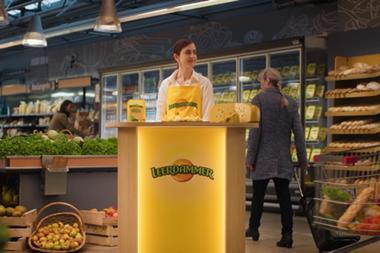
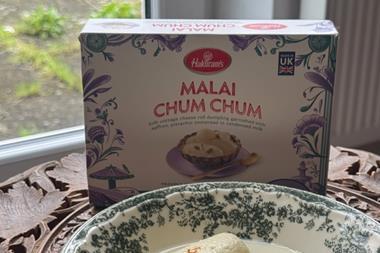
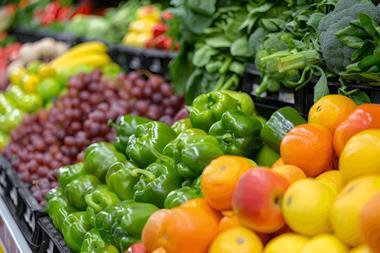
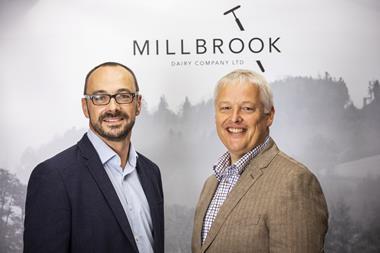
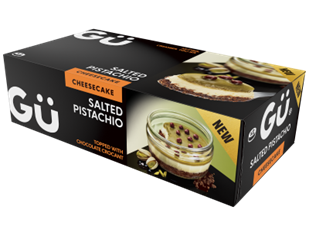
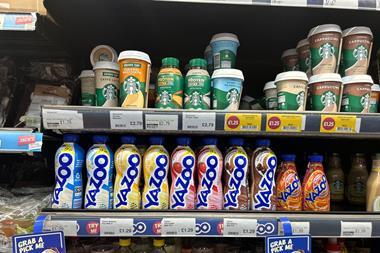


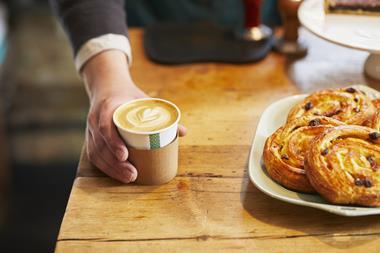
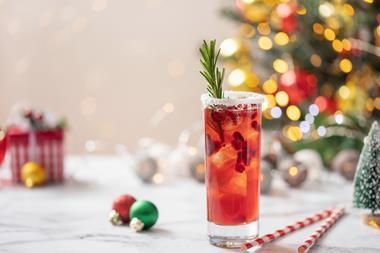


No comments yet